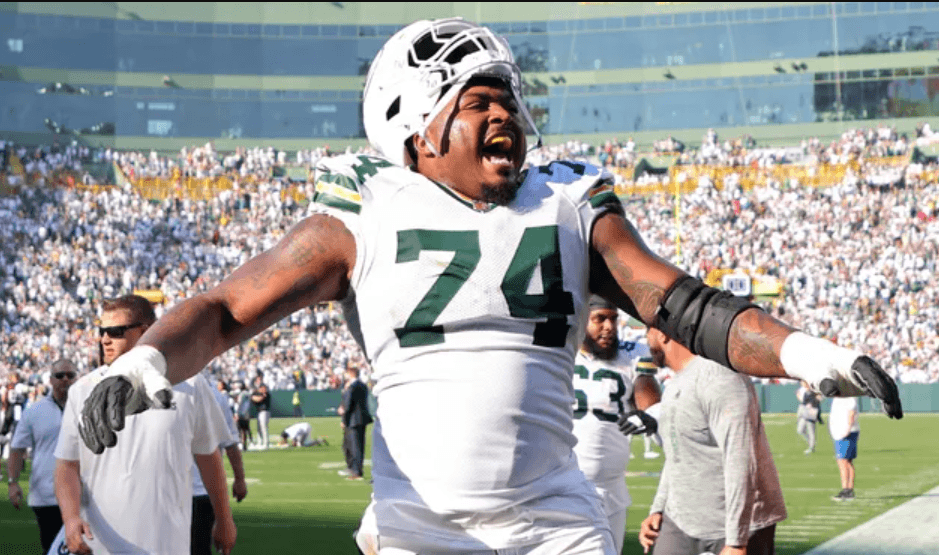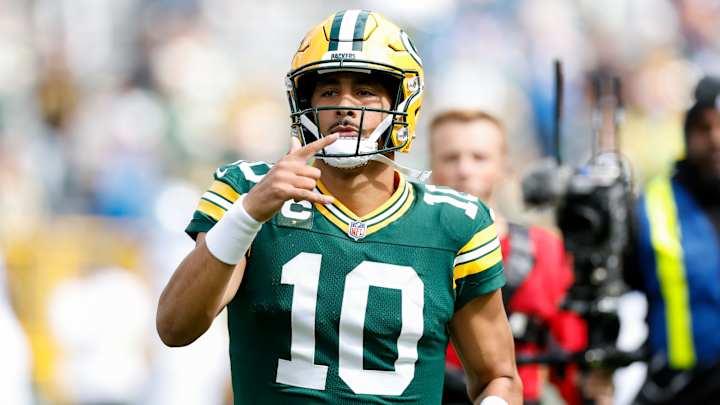Elgton Jenkins agrees to play center, sets conditions for talks with Packers
June 24, 2025, Green Bay, Wisconsin – Green Bay Packers’ star offensive lineman Elgton Jenkins has agreed to transition from guard to center for the 2025 NFL season, a move aimed at bolstering the team’s offensive line. However, the two-time Pro Bowler has set a clear condition for the Packers: a renegotiated contract that reflects his new role and value to the team.
Jenkins, 29, is entering the third year of a four-year, $68 million deal signed in 2022, with a 2025 salary of $17.6 million and $24.8 million due in 2026, none of which is guaranteed, per Overthecap.com. Centers typically earn less than guards, but Jenkins, known for his versatility and elite performance, is seeking a contract adjustment to secure guaranteed money and align his pay with his critical role in protecting quarterback Jordan Love. His absence from OTAs and limited participation in mandatory training camp sparked speculation, but sources confirm his holdout was tied to these contract talks.
“I’m ready to play center and help this team win,” Jenkins said in a statement. “But I want to ensure my future with the Packers reflects the work I put in.” His performance last season—allowing just two sacks and earning an 83.1 pass-blocking grade from Pro Football Focus (third among 136 guards)—underscores his importance to Green Bay’s Super Bowl aspirations.

Head coach Matt LaFleur praised Jenkins’ adaptability, saying, “Elgton’s a pro. He’s shown he can dominate at any spot on the line.” Offensive coordinator Adam Stenavich echoed this, noting Jenkins’ prior college experience at center makes him a natural fit. General manager Brian Gutekunst called Jenkins a “valuable asset,” hinting at ongoing discussions to meet his demands.
The Packers, aiming to emerge as a top NFC contender in 2025, see Jenkins as a cornerstone of their young, talented roster. His shift to center is expected to solidify the offensive line, but his contract situation remains a storyline to watch. Jenkins’ teammates, including Love, have expressed support, with the quarterback noting, “He’s our anchor up front. We trust him anywhere.”
As training camp progresses, all eyes will be on whether the Packers meet Jenkins’ condition to secure his long-term commitment. A resolution could pave the way for a seamless transition and a stronger push toward a Super Bowl run.
Follow more updates on ESPN for the latest on Jenkins and the Packers’ 2025 season












